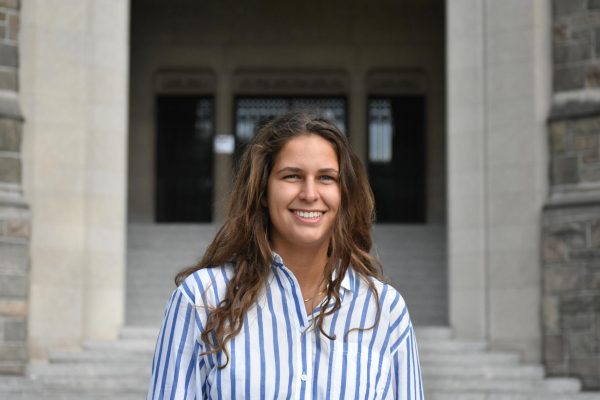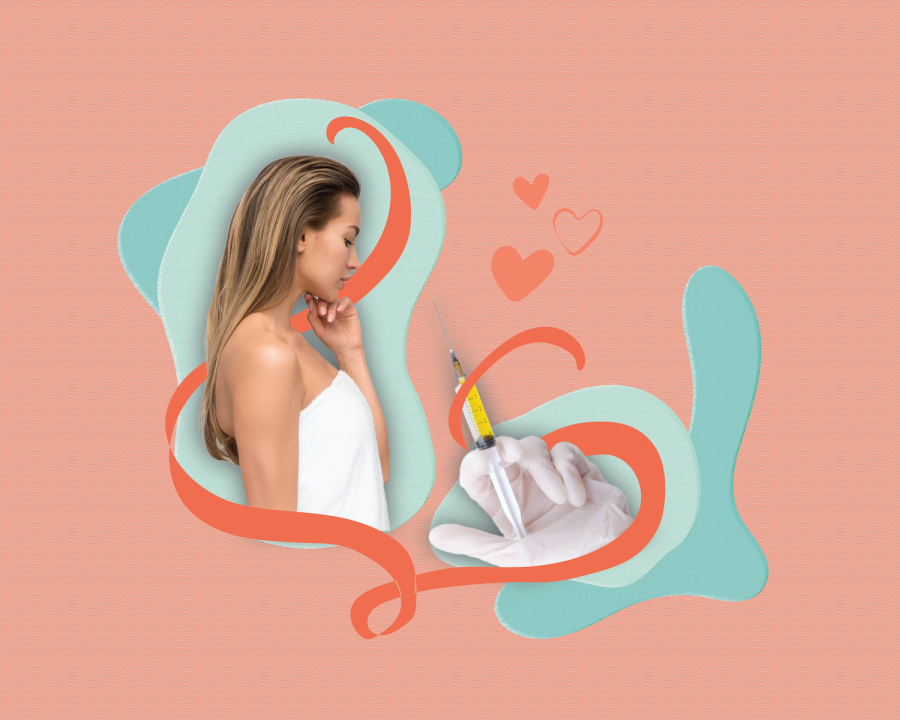Plastic Surgery Isn’t a Quick Fix for Self-Love
Last year I was digging through some old family photos when I stumbled across my grandparents’ wedding album. My grandmother looked stunning in her gown and she had the broadest smile on her face. And then I spotted my nose, the nose that I don’t like very much. I studied it on her and found that I didn’t think it engulfed her face or dipped too low when she smiled. I thought none of the things that I think when I look at myself in the mirror. Her nose was beautiful and it was hers and it made me feel better about mine.
And then I remembered she got a nose job.
This remembrance quickly tampered down the newfound exciting acceptance of my nose, but it did make me think more deeply about self-love, acceptance and what those buzzwords even mean. Why was I so quick to accept something I haven’t always liked about myself just because I have it in common with someone I love?
I think love comes from acceptance. It comes from seeing flaws in yourself and others and not really caring because they are just parts of the thing that you love.
Some people say “I love myself now,” post-cosmetic surgery, and that implies they didn’t love themselves before going under the knife. If you get plastic surgery and feel a greater sense of self-acceptance and love, I’m not sure you can look back at your former self without feeling some level of contempt.
I do not want to come across as shaming those who want or who have had plastic surgery. If your cosmetic surgery brings you joy when you look in the mirror, then all the power to you. I’m just doubtful if this joy post-surgery is actually true self-love. I don’t think self-love will ever be true until we accept all parts of ourselves, both past and present, both loved and not.
Self-love is hard to understand these days, even though it is a concept we’re talking about more than ever before. It is such a complicated topic partly because it has been hijacked by the capitalist agenda. Mainstream neoliberal (and often white) feminism has tried to convince us that if we want to love our bodies, completely and wholeheartedly, we have to spend money on expensive procedures. We’re being taught that if we undergo plastic surgery for ourselves and our sense of self-love, not just to satisfy the male gaze, then that surgery is empowering. But we can’t forget that one of the plastic surgery industry’s primary objectives is to profit off of our need for self-love, not help us achieve it.
This message of undergoing plastic surgery in an empowering way is hard to ignore because this message is coming from everywhere, not just our favorite influencers and celebrities, but also the people in our everyday lives who buy into it, literally. How do we learn to love ourselves, to see something we may not like and accept it, if we’re constantly being reminded of and pushed toward a quick fix? That fixing it won’t just make you look better physically, but also feel more empowered internally? (Again, my intention is not to discredit those who do feel more empowered as a result of their plastic surgery, because there is power in having the agency to change something you don’t like. However, there is a clear difference between making a choice for yourself and having a choice thrust upon you by outside influences.)
Not only is the neoliberal feminist and capitalist agenda hard to ignore, it can also be deadly. Earlier this month, the FDA released a warning that “certain cancers may develop in scar tissue” that forms around breast implants. The risk of developing cancer as a result of implants is rare, but it does give us pause to think about not only the mental consequences of searching externally for self love, but also the physical ones.
The number of people getting plastic surgery has been on the rise for a long time — in 2021 the number of cosmetic surgeries increased by 40% from 2020. But what goes up must always come down.
People are becoming more outspoken about how they wish they didn’t follow social media beauty trends or fall victim to societal ideals of beauty. In a notable 2022 interview with Vogue, Bella Hadid, one of the world’s most sought-after models, admitted to having a nose job at 14, and confessed that she now regrets that decision. She wishes she “had kept the nose of [her] ancestors.”
If you decide that plastic surgery is something you want, don’t do it just to chase a trend, because they are fickle and ever-changing. Do it because you think it will make you happier, and remember to hold some love in your heart for the person you were before. You can only really love yourself by accepting all parts of yourself. Cosmetic surgeries only create surface differences. The real work has to come from within.
When I look at my nose, I think of my grandmother and how she changed hers. I will never know exactly why she did it, and I can’t promise that I won’t change it myself one day. Maybe I won’t ever love my nose, but I will do my very best to accept it, to see it as just another part of a person I love, or hope to love: myself.
Nicole Braun, FCRH ’24, is an English major from Saddle River, N.J.

Nicole Braun is a senior from Saddle River, N.J. and she is thrilled to be a member of Volume 105! Her love for writing and editing led her to begin writing...










































































































































































































